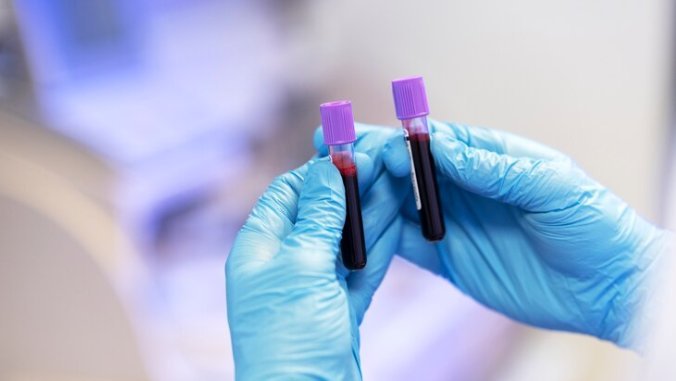Who Should Get an IgE Blood Test? Key Symptoms and Risk Factors
If you're struggling with allergies, breathing problems, or skin reactions for no apparent reason, getting an IgE blood test could be the first step toward finding relief. By identifying your triggers, you can take control of your health and improve your quality of life.

Have you ever had a sudden onset of sneezing, itchy skin, or trouble breathing that made you think you might have allergies? If so, you're not alone. Many people struggle with allergies but don't realize that a simple IgE blood test can give them the answers they need.
What is an IgE Blood Test?
The IgE blood test measures immunoglobulin E (IgE) antibodies in your blood. These antibodies are part of your immune system and play an important role in allergic reactions. When your body encounters an allergen — such as pollen, dust or certain foods — your immune system can overreact and produce high levels of IgE. This can cause symptoms such as rashes, swelling and difficulty breathing.
Key Symptoms Indicating You May Need the Test
- Frequent Sneezing and Runny Nose – If you find yourself constantly sneezing, especially when around pets, dust, or certain plants, you could be dealing with an airborne allergy.
- Skin Reactions – Persistent rashes, itching, or eczema might indicate an allergic reaction to something in your environment or diet.
- Breathing Issues – If you experience wheezing, shortness of breath, or asthma-like symptoms, allergies might be the underlying cause.
- Digestive Problems – Stomach pain, bloating, nausea, or diarrhea after eating specific foods could signal a food allergy.
- Swelling or Anaphylaxis – In severe cases, some people experience swelling of the lips, tongue, or throat, which can be life-threatening.
Who Should Consider an IgE Blood Test?
- People with Persistent Allergy Symptoms – If you frequently deal with allergies but aren’t sure what triggers them, this test can help identify potential allergens.
- Children with Unexplained Rashes or Reactions – Kids often develop allergies early on, and an IgE blood test can help pinpoint what’s causing their discomfort.
- Individuals with Family History of Allergies – If allergies run in your family, you might be at higher risk.
- Those with Chronic Sinus or Respiratory Issues – If you always have a stuffy nose or sinus infections, allergies could be a contributing factor.
Real-Life Example: Sarah’s Story
Sarah, a 28-year-old teacher, struggled with constant sneezing, itchy eyes, and frequent sinus infections. She thought it was just seasonal allergies, but after an IgE blood test, she learned she was allergic to dust mites and the pollen of certain trees. With this information, she adjusted her home environment — using allergy-proof bedding and an air purifier — and noticed a dramatic improvement in her symptoms.
Practical Advice
- Keep a Symptom Diary – If you suspect allergies, track your symptoms and potential triggers.
- Discuss with a Doctor – An allergy specialist can help interpret test results and recommend treatment.
- Make Lifestyle Adjustments – Simple changes, like using hypoallergenic products or modifying your diet, can make a big difference.
Final Thoughts
If you're struggling with allergies, breathing problems, or skin reactions for no apparent reason, getting an IgE blood test could be the first step toward finding relief. By identifying your triggers, you can take control of your health and improve your quality of life.
What's Your Reaction?














